Go Lean Commentary
I have an older brother …
… he was born in 1962 while I was born in 1963. He is actually 18 months ahead of me. But for much of my youth, those 6 months every year after my birthday and before his, I felt as if I was catching up with him – being only 1 year behind. Then his birthday comes, and I was reminded that I can never really catch him. (This was the mind of a 4-year old boy).
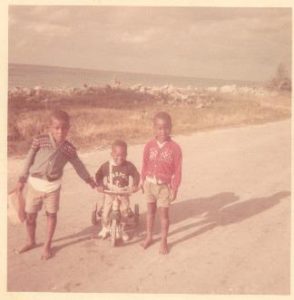
There are a lot of things in life that are like this: We can get close but never quite catch up. One realizes that this is the same with immigrating to the United States. Despite being a Nation of Immigrants (NOI), new ones can never catch up with the Settlers. Consider the historicity of this distinction in the Appendix article below; composed by a “conservative” lawyer and published by the American Conservative Organization. (Conservatives are in contrast to liberals; while all conservatives are not racists, all racists are conservatives).
Yes, under the law (de jure), there is no difference between a First Generation American citizen and a Third Generation (or more) American citizen, but in reality (de facto) American society never really considers “you” as an Immigrant to be a full American.
 Listen up you Black-and-Brown people of the Caribbean, yearning to emigrate to the US. You will never be a settler. Accepting this reality may dampen the “Welcome Sign” to those who aspire for an American life.
Listen up you Black-and-Brown people of the Caribbean, yearning to emigrate to the US. You will never be a settler. Accepting this reality may dampen the “Welcome Sign” to those who aspire for an American life.
The movement behind the book Go Lean…Caribbean highlights the “Push and Pull” reasons why Caribbean people leave their homeland:
“Push” refers to people who feel compelled to leave, to seek refuge in a foreign land. “Refuge” is an appropriate word; because of societal defects, many from the Caribbean must leave as refugees – think LGBT, Disability, Domestic-abuse, Medically-challenged – for their life, liberty and pursuit of happiness. For these people, they are “on fire” and need to stop-drop-and-roll.
“Pull”, on the other hand refers to the lure of a more prosperous life abroad; many times our people are
emigrating for economics solely.
This is a Hot Topic today as Immigration Policy is all the rage. The current President of the US, Donald Trump, wants to curtail immigration into his country for the Black-and-Brown from Latin America and the Caribbean (LAC). In fact, as of this date, there is a Federal Government Shutdown as Mr. Trump would not approve an appropriations bill (budget) unless there is funding for his “Wall” along the 2,000-mile southern border with Mexico. He has even vocally advocated for a different immigration policy that invites people from North-West Europe while discouraging African and LAC people, derisively calling these ones as coming from “shit-hole” countries.
In addition, consider this AUDIO-Podcast here, which details the complexities of this issue: Settlers or Immigrants – The Historicity of Immigration in the United States. Listen here:
AUDIO-Podcast – How The 1965 Immigration Act Made America A Nation Of Immigrants – https://www.npr.org/2019/01/16/685819397/how-the-1965-immigration-act-made-america-a-nation-of-immigrants
Heard on Fresh Air
Published on January 16, 2019 – For many years, U.S. immigration favored immigrants from northern Europe. NPR correspondent Tom Gjelten explains how a 1965 law changed things — and led to the current debate about border security.
This foregoing AUDIO-Podcast conveys a consistent point: America was settled by Europeans (British, Dutch, French and German) founders; everyone else are immigrants. The immigrant legacy will NEVER catch up to the settler legacy. (The same as catching up to an older brother’s age). America is an European enclave. The rest of the world must reckon with this.
This commentary continues a 5-part series on European Reckoning. This entry is 3 of 5 in this series from the movement behind the book Go Lean … Caribbean in consideration of the past, present and future of European interactions. While this series is on reconciling the European experience, this submission is on the White European history of the US. Even though the Caribbean was settled and organized by European powers, the same as the US, the lack of organizational efficiency in the Caribbean is a glaring concern. We have 30 member-states in the Caribbean region and yet, there is no coordinated regional stewardship of the economic, security and governing concerns of our communities. The other commentaries in the series are cataloged as follows:
- European Reckoning: IMF Apologies
- European Reckoning: China seeks to de-Americanize the world’s economy
- European Reckoning: Settlers -vs- Immigrants
- European Reckoning: Christianity’s Indictment
- European Reckoning: Black “Greco-Roman” Wrestler victimized for his hair
In the first two submissions in this series, the European Great Powers were also identified as the Western Alliance. The world economic eco-system is based on this White/Christian European and North American (US & Canada) legacy. Despite the larger population in the world, the goal of so many Asian, African or Latin American people is to get to these nations – sometimes at the risk of death – and to engage the societal engines there. Despite any success in places like Europe and the US, the reality is the same: Immigrants are not settlers; only a second-class citizenship status will ever be accorded to them.
 For the Caribbean, the Go Lean book distinguishes that America or Western Europe is not home for them. If we must seek refuge there, go … but remember to return home at some point; the sooner the better. These foreign shores will welcome your labor, but may never consider you as equal brothers-sisters. In their minds and hearts you are “Less Than“.
For the Caribbean, the Go Lean book distinguishes that America or Western Europe is not home for them. If we must seek refuge there, go … but remember to return home at some point; the sooner the better. These foreign shores will welcome your labor, but may never consider you as equal brothers-sisters. In their minds and hearts you are “Less Than“.
Considering the “Push and Pull” factors above, the purpose of this commentary is to lower the “Pull” reasons. While we must work on the “Push” factors ourselves, it does improve our prospects if our citizenry do not feel like “the grass is greener on the other side”. If they know that if they emigrate they can never catch up with the settlers, they may not welcome the immigrant status. They may be more inclined to try to prosper where planted in the Caribbean homeland.
The reality of our Caribbean Diaspora in these foreign lands – the US in particular – have been elaborated upon in many previous Go Lean commentaries; see a sample list here:
| https://goleancaribbean.com/blog/?p=16395 | The Caribbean – A People or A Place? It is limited how much Caribbean culture can be exported away from the homeland. |
| https://goleancaribbean.com/blog/?p=15121 | ‘Time to Go’ – America’s Racist History of Loitering The blatant racists were defeated militarily (Civil War) so their spirit of racial superiority simply rose again. They took out their angst on the Black community, exploiting every appearance of loitering in Southern communities. Even today, the Cop-on-Black shootings are indicative of this bad community ethos. |
| https://goleancaribbean.com/blog/?p=14746 | Calls for Repatriation Strategy The Caribbean region has suffered from acute societal abandonment to the point that there is the need to reverse the trend and urge people to return, to repatriate. |
| https://goleancaribbean.com/blog/?p=14413 | Repairing the Breach: ‘Hurt People Hurt People’
When the Black-and-Brown populations of the Caribbean emigrate to the foreign lands, they live among the Black-and-Brown native populations. After long periods of oppression and repression, these communities have higher crime rates, drug usage and other abusive behaviors. |
| https://goleancaribbean.com/blog/?p=14087 | Opioids and the FDA – ‘Fox guarding the Henhouse’ Due to lax FDA’s oversight, pharmaceutical companies seem to have free reign with dispensing addictive drugs on their populations. Even Caribbean Diaspora members have been victimized. |
| https://goleancaribbean.com/blog/?p=11420 | ‘Black British’ and ‘Less Than’ A Black person speaking with a British accent gets more respect than a Black person speaking with a Caribbean slang or a ‘Hip-hop’ /‘Jive’ dialect. But even in Great Britain, accent or none, Blacks are still treated as “Less Than“. |
| https://goleancaribbean.com/blog/?p=13213 | ‘Pulled’ – Despite American Guns The US is the richest, most powerful democracy in the history of the world, but this country has some societal defects: guns, in addition to “Institutional Racism” and Crony-Capitalism. Yet still, Caribbean people flee there. |
| https://goleancaribbean.com/blog/?p=10654 | Stay Home! Immigration Realities in the US There are many people in the US that are not so welcoming to new immigrants. They protest in words and deeds to sour the experience for our Diaspora living there. |
| https://goleancaribbean.com/blog/?p=10494 | A Lesson In History – Ending the Military Draft The end of the draft in the US started the bad trend for Caribbean emigration to America – no need to sacrifice sons to the “Altar of War”. |
| https://goleancaribbean.com/blog/?p=1773 | Miami’s Caribbean Marketplace Re-opens The American immigrant experience is one of eventual celebration, but only after a “long train of abuses”: rejection, anger, protest, bargaining, toleration and eventual acceptance. While the experience in Miami today is one of celebration, and Miami does profit from this Caribbean Diaspora, their social disposition will never exceed the immigrant status – never a “settler”. |
Caribbean people have fled their homeland. Our abandonment rate is atrocious, with one report estimating that 70 percent of our professional classes have emigrated and now live abroad. It is time now to conduct a reckoning with our European (and American) destinations – they are not home. Quite simply, the reference to “European” is a de facto reference to White-Christian. So we can never be settlers; we can never catch up in Americanism, since it is based not just on timeline, but also race.
So the solution for Caribbean people to elevate their lives and societal disposition is to double-down in reforming and transforming our Caribbean homeland. Now is the time for the Caribbean region to lean-in to this roadmap for the Caribbean Union Trade Federation, as described in the book Go Lean … Caribbean. The roadmap includes the empowerments, strategies and tactics to elevate the societal engines of the Caribbean homeland.
Yes, we can … make the Caribbean, our homeland, a better place to live, work and play. 🙂
About the Book
The book Go Lean…Caribbean serves as a roadmap for the introduction and implementation of the technocratic Caribbean Union Trade Federation (CU), for the elevation of Caribbean society – for all member-states. This CU/Go Lean roadmap has these 3 prime directives:
- Optimization of the economic engines in order to grow the regional economy to $800 Billion and create 2.2 million new jobs.
- Establishment of a security apparatus to ensure public safety and protect the resultant economic engines.
- Improve Caribbean governance to support these engines, including a separation-of-powers between the member-states and CU federal agencies.
The Go Lean book provides 370-pages of turn-by-turn instructions on “how” to adopt new community ethos, plus the strategies, tactics, implementations and advocacies to execute so as to reboot, reform and transform the societal engines of Caribbean society.
Download the free e-Book of Go Lean … Caribbean – now!
Who We Are
The movement behind the Go Lean book – a non-partisan, apolitical, religiously-neutral Community Development Foundation chartered for the purpose of empowering and re-booting economic engines – stresses that reforming and transforming the Caribbean societal engines must be a regional pursuit. This was an early motivation for the roadmap, as pronounced in the opening Declaration of Interdependence (Pages 12 – 13):
xi. Whereas all men are entitled to the benefits of good governance in a free society, “new guards” must be enacted to dissuade the emergence of incompetence, corruption, nepotism and cronyism at the peril of the people’s best interest. The Federation must guarantee the executions of a social contract between government and the governed.
xix. Whereas our legacy in recent times is one of societal abandonment, it is imperative that incentives and encouragement be put in place to first dissuade the human flight, and then entice and welcome the return of our Diaspora back to our shores. This repatriation should be effected with the appropriate guards so as not to imperil the lives and securities of the repatriated citizens or the communities they inhabit. The right of repatriation is to be extended to any natural born citizens despite any previous naturalization to foreign sovereignties.
xx. Whereas the results of our decades of migration created a vibrant Diaspora in foreign lands, the Federation must organize interactions with this population into structured markets. Thus allowing foreign consumption of domestic products, services and media, which is a positive trade impact. These economic activities must not be exploited by others’ profiteering but rather harnessed by Federation resources for efficient repatriations.
Sign the petition to lean-in for this roadmap for the Caribbean Union Trade Federation.
——————-
Appendix – Title: The Nation of Immigrants Myth
By: Howard Sutherland
“We are a nation of immigrants.”
It is every American politician’s incantation, usually prefatory to some shibboleth lauding “strength in our diversity.” The creed of America as nation-of-immigrants (hereafter the “NOI creed”) is now unquestioned by Americans and foreigners alike.
The NOI creed’s assertion of national rootlessness justifies official multiculturalism and mass immigration. American schoolchildren are taught that the Statue of Liberty is a monument to immigration and that e pluribus unum on our currency celebrates the melting pot. Deutsche Bank recently published an analyst’s report, by a Polish immigrant in New York, lamenting a perceived rise in anti-immigration sentiments in the United States and instructing us that here “actually everybody is an immigrant,” so restricting immigration “would be devastating and virtually unthinkable.”
The creed is a half-truth but useful to social engineers transforming this country in ways alien to our history and heritage. Immigrants in the millions have come to the United States, most in waves beginning in the 1840s. Many immigrants and their descendants have contributed mightily to America. Others have contributed to the crime statistics. Some tried America, then went home. Nevertheless, the NOI creed is literally false: Despite thirty-plus years of mass immigration set off by the Immigration Reform Act of 1965, the vast majority of Americans are still American-born children of American-born parents. It is also historically false: Scores of millions of Americans are neither immigrants nor descendants of immigrants.
As for the Statue of Liberty, it is a gift from France to honor the centennial of American independence. Emma Lazarus’ “Give me your tired…”—a cri-de-coeur against Russian pogroms—is a later add-on. E pluribus unum explicitly commemorates the union of thirteen British colonies into one nation. The statue and the motto do not celebrate immigration; they salute the achievement of the settlers who founded those colonies and, in time, won independence from their Mother Country. It was the settlers’ nation, not empty wilderness, that later gave immigrants a new home.
To test the truth of the NOI creed, ask what a true nation of immigrants would be. Absent a founding group or majority, it would be no nation at all, but a random gathering of people of assorted races, religions, and nationalities, united only by their presence in the same land. With no native culture to provide national unity, the population would tend to fragment on racial and ethnic lines, ensuring division and strife as groups pursue their interests at each other’s expense. That may be our multicultural future. It is not the American past.
American history is the story of a varied nation with a distinct founding culture, one that remained dominant while assimilating—and being subtly changed by—later arrivals. That American culture is British, largely English, in origin, traditions, and religion. This article’s language is one small example.
By 1776, British colonists—mostly English, but with strong Scottish, Welsh, and Irish contingents, along with New York’s Dutch colonials and later German arrivals—had created an American branch of British civilization. At the time of the Declaration of Independence, they were long-settled: almost 170 years in Virginia, over 150 in Massachusetts. At great effort—and at the expense of the Indians they uprooted and the African slaves they imported—colonial Americans formed a nation in their own image. The diversity of their settlements reflected the variety of their British origins. David Hackett Fischer’s magisterial Albion’s Seed traces four great British colonial migrations that leave their mark still: Puritans from East Anglia to New England, Cavaliers from the West Country to Virginia, Quakers from the Midlands to the Delaware, and northern Britons, including the Scots-Irish, to the American backcountry.
Revolutionary Americans, the United States’ founders, were fairly homogeneous: 80 percent of British origin (60 percent English, 20 percent Scottish and Scots-Irish), most of the rest Dutch and German—the great majority American-born. Overwhelmingly Christian, 98 percent were Protestants. (Not included in these percentages are American Indians, who had no part in the political life of the colonies, and African slaves and freemen, who were largely excluded from political and social life.) These descendants of colonial settlers were American natives, if by America we mean the United States.
Samuel Huntington makes a useful distinction between the settlers of a country and immigrants to it. It helps answer whether the United States is truly a nation of immigrants or an organic nation with an ethnic and cultural core: a nation of the settlers’ posterity augmented by immigrants and their posterity. In Huntington’s words:
Immigrants are people who leave one country, one society, and move to another society. But there has to be a recipient society to which the immigrants move. In our case, the recipient society was created by the settlers who came here in the 17th and 18th centuries. … They came in groups to create new societies up and down the Atlantic seaboard. They weren’t immigrating to some existing society; indeed, they often did whatever they could to destroy whatever existed here in the way of Indian society. … It was [the settlers’ Anglo-Protestant] society and culture that…attracted subsequent generations of immigrants to this country.
One demographic study concluded that, had there been no immigration after 1790, the settlers’ posterity alone—including African slaves’ and freemen’s descendants—would have grown by 1990 to approximately half the size of the actual population, which implies roughly half of Americans still have roots in the founding stock whose existence the NOI creed denies.
The federal structure the Founding Fathers erected for the United States is firmly grounded in their British heritage and American experience. No surprise: they were overwhelmingly of British descent, mostly English. Those who signed the Declaration and the Constitution knew of Locke and Enlightenment philosophes but knew their native law best: the English Common Law. Common Law remains the bedrock of every state’s law, with the unique exception of Louisiana. The rights of Englishmen were the animating spirit of the Bill of Rights, meant to secure them more effectively in America than they often were in England.
Despite the evidence of American history, the NOI creed is entrenched, as is its corollary: the idea that the United States is a “propositional nation” with no ethnic basis, defined entirely by allegiance to the Declaration’s propositions. It is worth asking why. Acknowledging that America is a nation like others, with a native stock and traditions, does not deny the contributions of millions of immigrants and their descendants. Nor does it imply that Americans of immigrant descent are somehow lesser citizens. American success is the work of settler and immigrant alike. The propositional nation idea, that America’s British origins are immaterial to our national character, is also a half-truth. One has only to look at Mexico or Brazil to see how differently Spanish and Portuguese settler nations developed. An America that abandons its heritage and founding culture will be a different, and poorer, place. As Russell Kirk put it: “So dominant has British culture been in America, north of the Rio Grande, from the seventeenth century to the present (1993), that if somehow the British elements could be eliminated from all the cultural patterns of the United States—why Americans would be left with no coherent culture in public or in private life.”
Why, then, such pressure to pretend that the United States is not really a country but an inhabited idea? One reason may be the attractiveness of the propositional nation idea to immigrant groups that do not want to feel second-class next to the natives. A benign motive but unnecessary: the United States accords no preference to settlers’ descendants. Another is that the NOI, dedicated to a democratic proposition, provides a pretext for foreign interventionism: is it not the highest calling of such a state to democratize, through conquest and occupation if necessary, the less-fortunate rest of the world whence its immigrant-citizens came?
America’s integrity is strained by multiculturalism, affirmative action, and mass immigration. The NOI creed is most convenient for those in government, ethnic pressure groups, and academia who want to cut America loose from her history and traditions to recast her as a multicultural mélange they can rule by distributing spoils to contending groups. In short, the creed has become a weapon for those who would dissolve America as it has evolved and replace it with something else. Those who would conserve this country need to know enough history to refute it.
__________________________________________
Howard Sutherland is an attorney in New York.
Source: The American Conservative – Posted November 18, 2002; retrieved January 18, 2019 from: https://www.theamericanconservative.com/articles/the-nation-of-immigrants-myth/
—————
About Us
The American Conservative exists to promote a “Main Street” conservatism that opposes unchecked power in government and business; promotes the flourishing of families and communities through vibrant markets and free people; and embraces realism and restraint in foreign affairs based on America’s vital national interests.
…
The American Conservative is a nonprofit, nonpartisan, 501(c)(3) organization that presents a measured, pertinent, principled conservatism for our time. We believe in constitutional government, fiscal prudence, sound monetary policy, clearly delineated borders, protection of civil liberties, authentically free markets, and restraint in foreign policy mixed with diplomatic acuity. We adhere closely to our institutional maxim: ideas over ideology; principles over party.
Source: Retrieved January 19, 2019 from: https://www.theamericanconservative.com/about-us/

 When we refer to Europe’s future, we are referring to the tenuous status in their integration movements – think European Union (EU), IMF, and the resultant
When we refer to Europe’s future, we are referring to the tenuous status in their integration movements – think European Union (EU), IMF, and the resultant  While none of the 29 NATO members include any Caribbean independent states, 16 Caribbean Overseas Territories are thusly aligned as dependents of the American (2), British (6), Dutch (6) and French (4) imperial powers. Plus with the Caribbean Basin Security Pact, the full Caribbean – except Cuba – is aligned with NATO members: United States and Canada.
While none of the 29 NATO members include any Caribbean independent states, 16 Caribbean Overseas Territories are thusly aligned as dependents of the American (2), British (6), Dutch (6) and French (4) imperial powers. Plus with the Caribbean Basin Security Pact, the full Caribbean – except Cuba – is aligned with NATO members: United States and Canada. The
The 
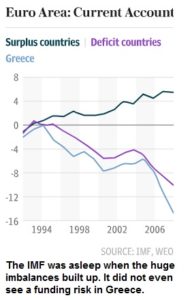 In Greece, the IMF violated its own cardinal rule by signing off on a bailout in 2010 even though it could offer no assurance that the package would bring the country’s debts under control or clear the way for recovery, and many suspected from the start that it was doomed.
In Greece, the IMF violated its own cardinal rule by signing off on a bailout in 2010 even though it could offer no assurance that the package would bring the country’s debts under control or clear the way for recovery, and many suspected from the start that it was doomed. This ‘Tribalism’ is the reckoning that Europe is doing right now regarding the IMF. They are reconciling their past, present and future and recognizing that they now have to build trust, anew – see the Appendix VIDEO below.
This ‘Tribalism’ is the reckoning that Europe is doing right now regarding the IMF. They are reconciling their past, present and future and recognizing that they now have to build trust, anew – see the Appendix VIDEO below. The responsibility to assuage these bad behaviors must lie first with the religious institutions. But any failure to deliver protection by these institutions would truly mandate that the “State” (government) step in and deliver.
The responsibility to assuage these bad behaviors must lie first with the religious institutions. But any failure to deliver protection by these institutions would truly mandate that the “State” (government) step in and deliver.


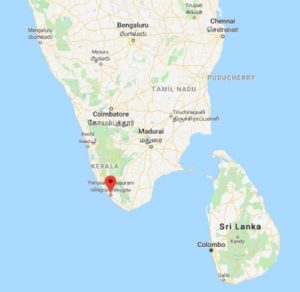 Indian Widows
Indian Widows This is the Year 2019 and we are still talking about women being suppressed, oppressed and repressed in society. Change just doesn’t happen because the ‘clock is ticking’. No, people have to forge change, overcome the obstacles and embed the needed new value systems to get improvements institutionalized instead of just a passing trend. Change takes heavy-lifting.
This is the Year 2019 and we are still talking about women being suppressed, oppressed and repressed in society. Change just doesn’t happen because the ‘clock is ticking’. No, people have to forge change, overcome the obstacles and embed the needed new value systems to get improvements institutionalized instead of just a passing trend. Change takes heavy-lifting. The Year 2018 is now over, and what an impactful year it has been. In fact, an analysis over the annals of time shows that all years ending in “8” seems to be impactful, especially in the last 100 years. We are truly able to concur with the American Media (Radio and TV) tagline: “News on the 8’s“.
The Year 2018 is now over, and what an impactful year it has been. In fact, an analysis over the annals of time shows that all years ending in “8” seems to be impactful, especially in the last 100 years. We are truly able to concur with the American Media (Radio and TV) tagline: “News on the 8’s“.
 So we went from “planning the plan” to now “planning the action”.
So we went from “planning the plan” to now “planning the action”. The Go Lean book was written 5 years ago as a 5 Year Plan to reform and transform the Caribbean region. Had the plan been adopted by the regional stakeholders, then the Agents of Change would have been better addressed. The plan, or roadmap, to introduce and implement the Caribbean Union Trade Federation is still rearing to start; and while we cannot single-handedly solve Climate Change, we can better prepare the region for the heavy-lifting involved. The book describes the community ethos to adopt plus the many strategies, tactics and implementation that need to be executed.
The Go Lean book was written 5 years ago as a 5 Year Plan to reform and transform the Caribbean region. Had the plan been adopted by the regional stakeholders, then the Agents of Change would have been better addressed. The plan, or roadmap, to introduce and implement the Caribbean Union Trade Federation is still rearing to start; and while we cannot single-handedly solve Climate Change, we can better prepare the region for the heavy-lifting involved. The book describes the community ethos to adopt plus the many strategies, tactics and implementation that need to be executed.
 This is an
This is an  The book scanned the landscape in the Caribbean and found a lot of deficiencies in the economics, security and governance in the region. For example, for those 5 years the movement behind the Go Lean book have been telling people that there is an overriding need for a technocratic postal solution in the Caribbean region. This is how to keep up with the demands of globalization.
The book scanned the landscape in the Caribbean and found a lot of deficiencies in the economics, security and governance in the region. For example, for those 5 years the movement behind the Go Lean book have been telling people that there is an overriding need for a technocratic postal solution in the Caribbean region. This is how to keep up with the demands of globalization.

 Imagine a Caribbean reality with flat-rate envelopes and flat-rate boxes. Imagine the automation, the robotic technologies, the scanning and sorting. The brand CPU would really be apropos – more software, e-Commerce and Internet Communications Technology – as opposed to the neighborhood mail-carrier. See this industrial shift in the related news article in the Appendix below. In fact, the company
Imagine a Caribbean reality with flat-rate envelopes and flat-rate boxes. Imagine the automation, the robotic technologies, the scanning and sorting. The brand CPU would really be apropos – more software, e-Commerce and Internet Communications Technology – as opposed to the neighborhood mail-carrier. See this industrial shift in the related news article in the Appendix below. In fact, the company 

 Now is the time to ask ourselves: should the British neo-colonial status continue? Is it time to consider a formal exit?
Now is the time to ask ourselves: should the British neo-colonial status continue? Is it time to consider a formal exit?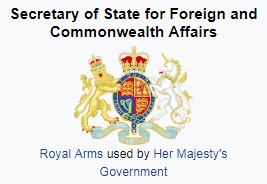
 But, these European territories (colonies) in our region are too small to effect change alone; therefore there is the need to convene, collaborate and confederate as regional neighbors. Of the total (30 member-states), there are 18 that reflect some British neo-colonial stance (overseas territory or commonwealth member). In addition there are 6 direct territories (Aruba and the 5 formerly branded
But, these European territories (colonies) in our region are too small to effect change alone; therefore there is the need to convene, collaborate and confederate as regional neighbors. Of the total (30 member-states), there are 18 that reflect some British neo-colonial stance (overseas territory or commonwealth member). In addition there are 6 direct territories (Aruba and the 5 formerly branded 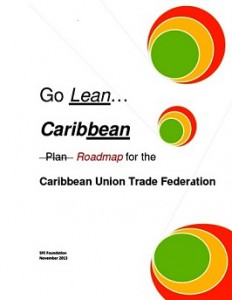

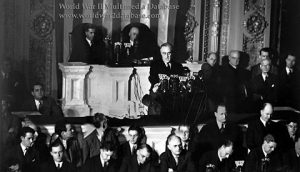 This day 77 years ago is a “day that will live in infamy”.
This day 77 years ago is a “day that will live in infamy”.



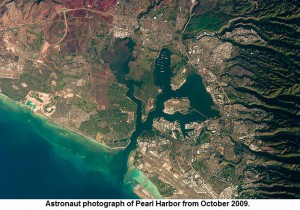


 We are being reminded of this sad reality of aging by the life-and-death of the 41st President of United States of America. At the end of his life, this able-bodied man (former war hero) was bound to a wheelchair.
We are being reminded of this sad reality of aging by the life-and-death of the 41st President of United States of America. At the end of his life, this able-bodied man (former war hero) was bound to a wheelchair.
 As related above, American society is at the matured level now in their Social Contract deliveries. They now expect the standard to be “reasonable accommodations” so that Persons with Disabilities can participate in and contribute to society. This was not always the case, and then George H.W. Bush came along and forge change in American society. This is not the standard in the Caribbean member-states … yet. But part of this reboot effort – the quest of the Go Lean roadmap – is to reform and transform the societal engines to benefit all members of the community, able-bodied or not.
As related above, American society is at the matured level now in their Social Contract deliveries. They now expect the standard to be “reasonable accommodations” so that Persons with Disabilities can participate in and contribute to society. This was not always the case, and then George H.W. Bush came along and forge change in American society. This is not the standard in the Caribbean member-states … yet. But part of this reboot effort – the quest of the Go Lean roadmap – is to reform and transform the societal engines to benefit all members of the community, able-bodied or not.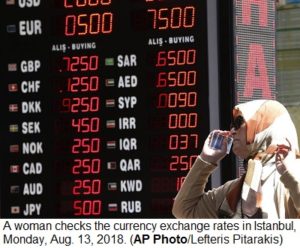 Sounds appealing, right?!
Sounds appealing, right?! Holy Cow! Economic Assassins; Vulture Capitalists; Currency Speculators; these are truly Bad Actors and a serious threat! Trade & economic stewardship is hard!
Holy Cow! Economic Assassins; Vulture Capitalists; Currency Speculators; these are truly Bad Actors and a serious threat! Trade & economic stewardship is hard!